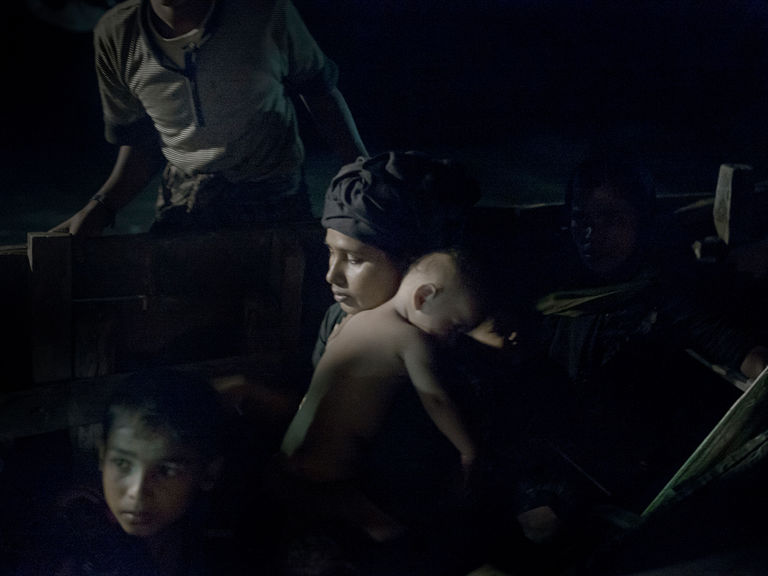Project Detail: STATELESS
Contest:
Swiss Storytelling Photo Grant 9th
Brand:
LuganoPhotoDays
Author:
William Daniels
Project Info
STATELESS
What happens when a person’s identity is negated to the point that they are deprived of any official existence? This person becomes stateless. Stateless people do not belong to any country – not even the one they consider their own. Many of the world’s 10 million stateless people do not feature in any census. Contrary to popular belief, they are seldom refugees: many have never left the land on which their ancestors were born. In the last years, I have met and documented several stateless communities around the world. The question of who belongs and who does not is a hot topic in our times of pervasive identity crises and rises of populism. Hannah Arendt wrote that citizenship is “the right to have rights”; in The Origins of Totalitarianism, she described the process of dehumanization of stateless people: when “Others” are created and differences are exploited, citizenship becomes an instrument to deprive of rights those who could threaten political, ethnic or economic interests.
In Dominican Republic bateys that run down bungalows that house sugarcane cutters of Haitian descent evoke the not so distant times of slavery, in the 19th Century. In the Dominican Republic, 90% of the population is Afro-descendant, but only 4% identifies as Black. Blackness is perceived as pejorative, and thus attributed to the much-discriminated Haitian community. This rejection is pervasive throughout the social strata… So that in 2013, the Constitutional Court revoked the citizenship of 133,000 Dominicans of Haitian origin – a measure ominously nicknamed “La Sentencia” (The Sentencing) by civil society. Overnight, many Dominicans became stateless, treated as illegal immigrants by a country in which they were born, and where their families had lived for several generations.
I went to the Nepalese Terai, where some badi women work as sex workers. Such is the fate of many women from the “untouchable” badi community, trapped in a vicious cycle of poverty, prostitution and statelessness. Most badi children are not recognized by their fathers, who are often clients; And because Nepalese citizenship is patrilineal, children who do not officially have a father are born without any citizenship and will have to quit school at 16. They won’t be allowed to have a bank account, establish a company, or have any job outside the informal economy – meaning that many f-girls will likely become sex worker. And, in turn, their children would have the same inexorable fate as “non-beings”, registered nowhere, and with no “right to have rights”. I also met some Musharar, another “untouchable” community affected by citizenship issue.
I explored Burj Al-Brajneh in Lebanon. This Palestinian camp is a labyrinth of concrete in Beirut, where some 40,000 Palestinians live. Since they first migrated to Lebanon in 1948, authorities have worried that integrating them could jeopardize the tenuous sectarian equilibrium between the country’s different communities. Today, three generations of Palestinians born in Lebanon are still considered outsiders and denied fundamental rights. They cannot own property, and are forbidden to work as doctors, lawyers or engineers. Half of this Palestinian population is less than 25 years of age, and most of these youths are unemployed. Because the camp cannot sprawl any further, its illegally built dwellings become higher and higher.
During early-to-mid 20th century, Ivory Coast (initially through the French) encouraged millions of immigrants from neighboring countries to work on its coffee, timber, cocoa, and cotton plantations. Mostly from Burkina Faso (Upper Volta), Mali and Ghana, these immigrants formed the backbone of “Ivorian miracle” in the 1960s and 1970s—and their descendants now make up more than a quarter of the entire population. Anti-foreigner sentiment led to a change in nationality laws in 1972, granting citizenship through right of blood rather than right of soil. Overnight, hundreds of thousands became stateless. As the economy crashed, the issue of who is or is not Ivorian fueled two coups, a controversial election, and a civil war in 2001 that split the country between north and south.
In Bangladesh, The Rohingya is a persecuted minority from Myanmar. They became stateless in 1982 following a law obliging them to prove their presence before British colonization to obtain nationality. Many of them have fled the country in successive waves for 40 years for their Muslim neighbor. The main refugee camp, Kutupalong camp, has become the largest refugee camp in the world, housing about 600 000 people.
At last, I travelled to India to cover the demonstration against the Citizenship Amendment Act (CAA). Coupled with a plan to implement a nationwide counting of citizenship (National Register of Citizens or NRC) by India's Hindu nationalist government, it would -for the first time in Indian history- make faith a basis for attaining Indian citizenship.


















